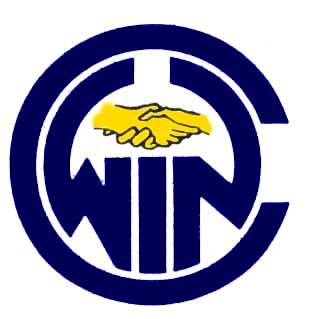











|
Agenda for the Certificate Program for Negotiating,
Collaborating and Leading in Today's World
FIRST SESSION
First Day - Resolving Conflict
The First Day of the Training takes a close look
at Conflict and how it needs to be understood and
approached to resolve, looks at the five Conflict
Behavior Styles and the costs and benefits of each,
Discusses the Collaborative WIN Process, the first of three Planning Grids, and the differences between interests, issues and positions, and reviews some Collaborative Skills and Tools which can be used in all negotiations:
- Understanding Conflict
- WIN's Contexts of Conflict
- WIN Levels of Conflict
- WIN’s Nine Parts To All Conflicts
- Separating the People from the Problem
- WIN Information Path
- Building Rapport and Working on Relationships
- Conflict Behavior Styles
- Positional Bargaining vs. Collaborative
Negotiations
- Interests, Issues, and Positions/Possible
Solutions
- The WIN Basic Planning Grid
- The Guide to the WIN Basic Planning Grid
- Starting the Negotiation Process
- Using Interests to Reach Resolution
- The Collaborative WIN Process
- The Seven Goals of the Collaborative WIN
Process
- Setting and Maintaining a Positive Frame
- The Keys to Reaching Resolution
- Three Basic Ingredients for Durable Agreements
- Achieving Resolution rather than a Mere Settlement
- Common Procedural Agreements
- The Collaborative WIN Agreement
Second Day - The Negotiation Process
The Second Day of the Training gets into the basic Negotiation Process used by most people – the Traditional Positional "Dance", gives you the second Planning Grid and tools to successfully complete the "Dance" more efficiently and with better results, Reviews the step by step road map for negotiations and how to be assertive in a positive way:
- Deciding Whether to Negotiate
- Gathering of Necessary Information
- Assessing the Conflict
- Deciding When to Negotiate
- When to End Negotiations
- Distributive Bargaining Process and Skills
- The Traditional Positional "Dance"
- How the Traditional Positional "Dance"
Works
- Predicting the Outcome of the "Dance"
- Determining Your Reservation Price or Bottom Line
- Determining Your Opening Offer
- Preparation for the "Dance"
- The WIN "Dance Card Planning Grid
- The Guide to the WIN "Dance Card"
- The Conflict Continuum
- WIN's Ideal Collaborative Model - Stage One
- Review of the results of your Conflict Behavior
Surveys
- The Right Answer in Negotiations
- WIN Assertive statements
- Who Makes the First Offer?
Third Day - Building on the Negotiation Process
The Third Day of the Training covers Collaborative Communication skills, shows you how to prioritize and work with the driving forces in negotiations, moves into the more difficult aspects and challenges of the Traditional Positional "Dance", and focuses on opportunities to use the materials offered in roles plays:
- Collaborative Communication Skills
- Non-Verbal Communication
- Collaborative Listening Skills
- How to Effectively Know and Prioritize Your Interests
- Prioritizing Interests
- WIN Allocation Chart
- Prioritizing Interests for a Group
- Video Presentation of a Successful Negotiation
SECOND SESSION
Fourth Day - Building Collaborative Skills
The Fourth Day of the Training covers negotiating over the telephone, managing anger, and the third Planning Grid, takes a different look at Power – how you can empower yourself and use your Power positively, moves into truly Collaborative Negotiations where money is not an issue, covers the Second Stage of WIN's Ideal Collaborative Model and discusses the principals, dynamics and skills of Consensus Building, Team Building, Effective Meetings and Team Negotiations:
- Review of First Session of Training
- WIN's Factors Contributing to Resolution vs. Chaos in Complex Adaptive Systems
- Negotiating over the Telephone
- Managing Anger
- Moving to truly Collaborative Negotiations
- WIN's Ideal Collaborative Model - Stage two
- The Collaborative WIN Planning Grid
- The Guide to the Collaborative WIN Planning Grid
- A Different Look at Power
- The Positive Use of Power
- Empowering Yourself
- Reviewing Interests, Issues and Possible
Solutions
- Key to Collaborative Negotiations
- Dynamics of Negotiations
- Consensus Building
- Bob's Guidelines for Consensus
- Tools for Effective Group and Team Meetings
- WIN's Team Work Roles
- Team Building
- WIN's Traveling Newsprint
- Use of Team Caucuses
Fifth Day - Advanced Collaborative Skills
The Fifth and Last Day of the Training looks at the
Ethical Considerations in Negotiations, Building Trust, Achieving Empathy, coping with Dirty Tricks and Tough Negotiators and getting others to the negotiating table, focuses on Advanced Collaborative Skills, reviews how the training can be used to be a more effective Leader and Manager, and ends with a discussion of Mediation and how you can use it effectively:
- Ethical Considerations in Negotiations
- Building the Level of Trust
- Being Empathic
- Protecting Yourself from Dirty Tricks
- Negotiating with the Tough Negotiator
- Getting to the Table
- Using the Collaborative Process to Lead and
Manage
- Leadership Commitments
- Creating a Leader's WIN Vision
- Creating Your Personal WIN Vision
- Creating and Using WIN Goals
- WINs Seven Steps to Leading Your Own Life
- The Collaborative Dialogue
- General Guidelines for Collaborative Negotiations
- A Quick Look at Mediation
- When and How to Use Mediation
- How Not To Be Mediated Upon
Return to WIN's Certificate Program for Negotiating, Collaborating and Leading in Today's World
|
